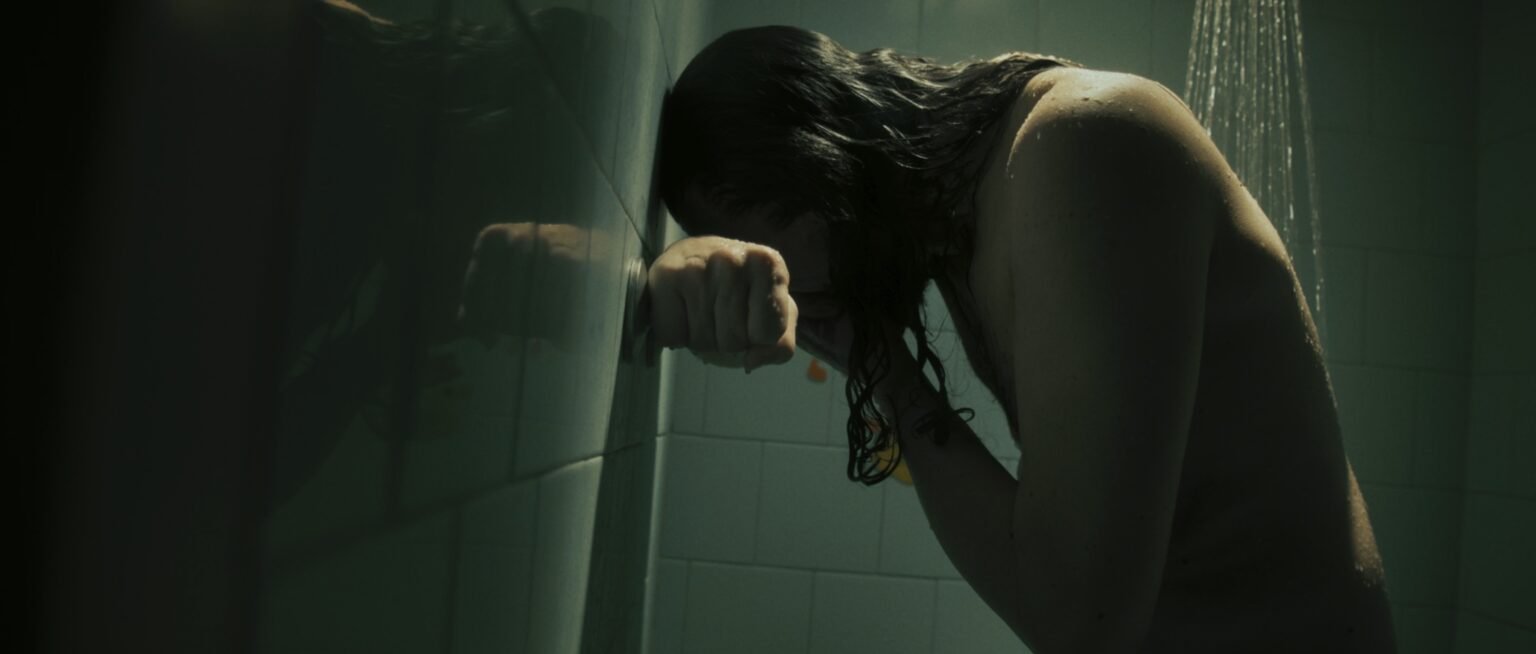The Coffee Table: Be Careful What You Wish For
Cinephobia Releasing
The Coffee Table, directed by Caye Casas and written by Casas and Cristina Borobia, is a lesson of sorts for when ego gets the best of us and the consequences of having to be right.
Jesus (David Pareja) and Maria (Estefania de los Santos) are a couple on the edge of a break up, who incessantly argue and take toxic swipes at each other. While they are out shopping for a coffee table for their apartment, the fighting escalates and each of them spend the whole time seeing who can be nastiest.
The egos that they both live in become a centerpiece of the film, that causes a horrifying event that neither can take back.
Is It really worth it?
Jesus and Maria stand before a coffee table, gilded in faux gold with a glass top. It’s really a cheesy, cheap looking table that looks like it belongs in Trump Tower and simply isn’t worth the price.
The salesman (Eduardo Antuna), is the picturesque representation of the comedic extreme, giving a wholly false presentation of the table that the company who made it would praise him for. He sustains a rigorous amount of pressure, challenging Juan’s toxic masculine side, encouraging him to stand up for what he wants, no matter what his partner says.
Maria is equally toxic and super controlling. She says anything she wants to him, no matter how hurtful it is and Jesus takes corresponding nips at her, even to the likes of telling her that their newborn son was, essentially her fault and that he didn’t really want kids.
Jesus, fed up with her domination, man spreads his way into buying the table, and, in his eyes, settling the score between them.
His stubbornness manifests a nightmare that no one sees coming.
Cinephobia Releasing
Pride Goeth before a literal fall
When they return home with the table, Maria heads to the grocery store alone to prepare for a dinner with Jesus’s brother Carlos (Josep Maria Riera) and his new girlfriend Cristina (Claudia Riera), later that evening.
What ensues in the apartment while she is away, is a nightmare of epic proportions, sending Jesus into a downward spiral of shock, shame and unbearable guilt.
He spends the rest of the film trying to keep the devastating secret to himself, that, inevitably rocks him and the people around him to the core.
in all honesty…
The Coffee Table is one of the best psychological horrors that I’ve seen in a very long time.
The inciting incident that happens early on in the film literally made me gasp and cover my mouth in utter surprise. Though the incident is full of devastation, it also creates a lot space for the film to explore the human psyche and leaves audiences to draw upon its powerful metaphors.
The particular harshness of this incident, when looked at as a consequence of ego, is most extreme, but works within the confines of a brutal tale. Though there is no fantasy involved, it still harkened memories of old, dark fairy tales and stories of the macabre I read as a child.
Cinephobia Releasing
With Poe-esque madness, the tension in the film is a masterclass of story building that won’t let you go even after the end of the film. It stands among the best films of all time for its unrelenting grip. The audience is wrapped up with Jesus and we feel all of the film’s tragic mercilessness with him, whether we want to or not.
I can understand my critic colleagues when they recoil from recommending this, as it has the potential to trigger a very specific group of people, but as a horror fan, I really think that not recommending it is also a tragedy.
It has the power to teach us how horrifyingly dark our egos can get, when we try to selfishly overpower one another and don’t allow a truce in order to heal our wounds, and truly see each other.
So simplistic, so surreal and yet violently authentic, it is a breathtaking, all consuming ride into just how far darkness can consume us, both literally and figuratively. It is an unrelenting nightmare that viewers won’t be able forget.


